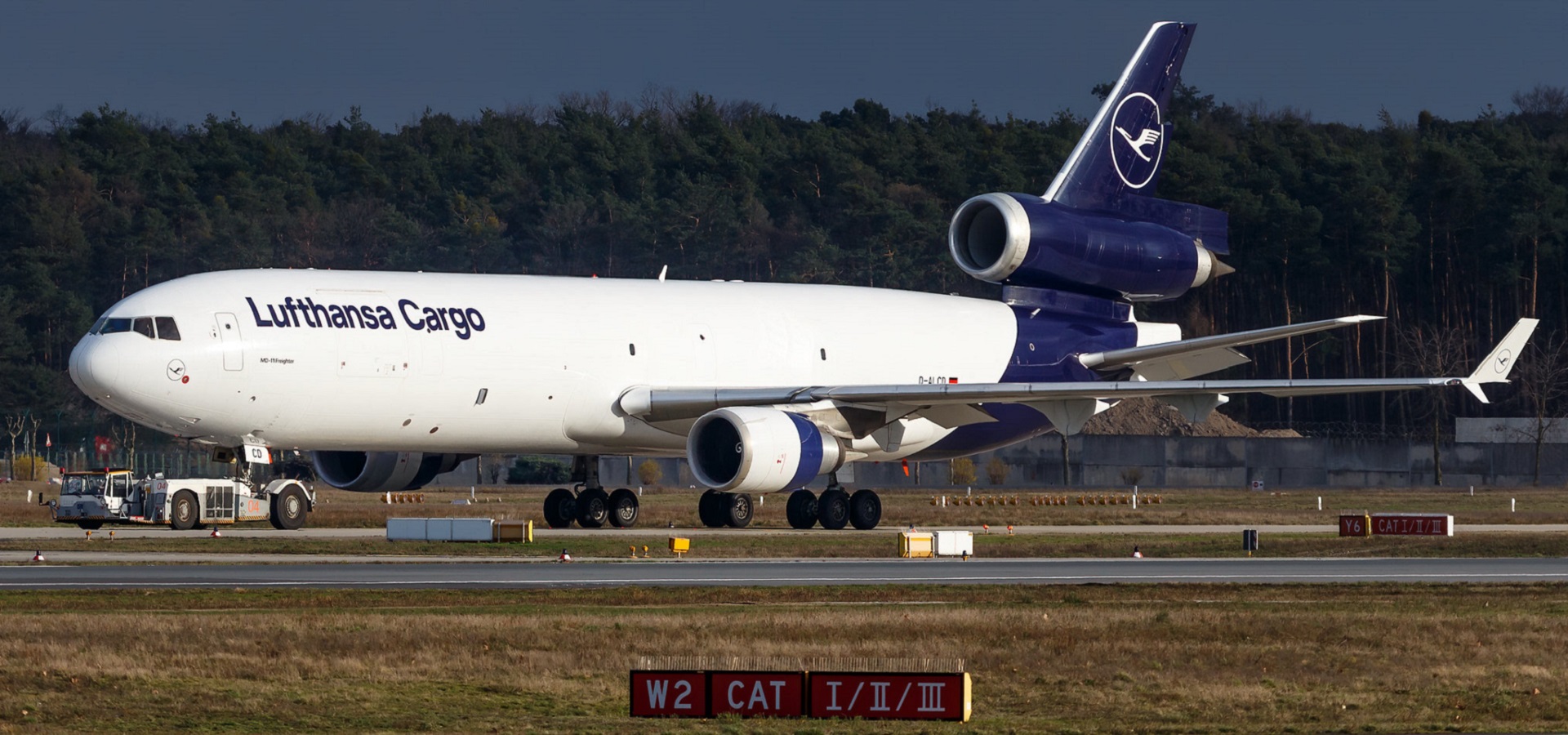Global trade has been a notorious difficult sector to sign up for decarbonization. The crux of the problem is that its business is crossborder, and thus skirts the emissions reduction plans of individual national states. Much of it thus gets a free ride. Paul Hockenos reports

The German government agrred to a €9 billion rescue package for Lufthansa. (CC BY 2.0, TJDarmstadt)
This, though is changing, particularly in Europe. The coronacrisis presents a rare opportunity for the EU and member states to get touch with cargo carriers. The first steps are already underway.
Freight transport — whether by air, land or sea — still relies overwhelmingly on fossil fuels, and accounts for 7% of all global emissions. This is why experts agree that international trade must be decarbonized if we expect to hit the Paris Agreement’s climate goals. Today, with the world’s freight carriers deeply shaken and supply chains upturned, is exactly the right time to reshape it.
Indeed, many of the world’s largest freight transporters are flailing and will be reliant on government monies to survive. Major European airlines and automakers are cutting massive bailout deals with their governments right now. This creates leverage to prod them to go greener and contribute their fair share to hitting international climate targets.
This might, at first, sound like a Sisyphean task. But there are four ways to do this.
The first is by attaching environmental conditions to the pandemic’s bailouts and loans. European Greens argue that state aid should only be approved if airlines present credible emissions-cutting plans, pledge to pay tax on fuel, and phase out short-haul flights where trains can realistically do the job instead. “If taxpayers are to bail out airlines, there must be a quid pro quo – this industry must help secure our future in the face of an unfolding climate emergency,” argued a letter from Europeans Greens to Commission president Ursula von der Leyen.
This is exactly what Austria did with its national airlines. In Austria, Vienna’s nearly €800 million in governmental aid to Air Austria comes with stipulations that it limit short-haul flights and that the airline’s carbon emissions must fall by 30% by 2030 (base year: 2005). Moreover, it must cut noise pollution by 60%.
The French government has also made demands on Air France, which will collect €7 billion in aid and loans. But the conditions are vague and ultimately non-binding, as the Brussels watchdog Transport & Environment points out. Air France agreed to slash domestic flights by 50% by 2024 and buy more fuel-efficient planes. Air France is already The goal to chop in half its overall carbon-dioxide emissions per passenger-kilometer had been made last year.
“The climate conditions attached to the bailout are not legally binding, leaving it to the good will of Air France,” according to Transport & Environment. All of the ”conditions should be made mandatory, with clear financial penalties for failure to comply.“
In stark contrast, Berlin required nothing of the sort from Lufthansa in exchange for its €9 billion rescue package.
The path forward must also confront container shipping, which handles close to 80% of global trade and accounts for 2.5% of global greenhouse gas emissions. Rescue monies and loans, should cargo shippers require them. The sector should be required to eliminate most of the emissions from maritime shipping by 2050 rather than the current, very modest non-binding goal – proposed by the shipping sector itself – of just halving its emissions by then (compared to 2008 levels). Ever more alternative fuels and electric technologies can now replace the maritime fuels – among the dirtiest of fuels – used by most heavy-duty shippers.
Carlos Calvo Ambel of the Brussels-based watchdog group Transport & Environment says that, shipping “has to be set tough, binding targets, such as reducing carbon intensity by above 40% by 2030 compared to 2018 levels.”
The second measure is to wind back global trade in favor of more regional production. Here too there is movement in Europe. French President Emmanuel Macron and German Chancellor Angela Merkel recently underscored not only that recipients of EU coronavirus recovery monies invest in green projects but also that the financing “contribute to economic and industrial resilience and sovereignty”.
This new tone comes from the Europeans’ shock – experienced in the corona crisis’s early phase – that so much of their medical supplies and other key technology comes from China.
Thirdly, there is today increasing pressure to write tougher environmental and social standards into trade deals between the EU and its global partners. The Netherlands and France have even suggested slapping tariffs on trade partners that fail to meet their sustainable development commitments, such as Brazil for its destruction of the Amazon rainforest, and even countries that reject the 2015 Paris climate treaty, which presumably would include the US.
“Trade policy instruments can provide additional leverage to the implementation of international environmental and labor standards,” according to the Dutch-French document leaked to the German media.
And, lastly, another means to impact imports is an EU carbon border adjustment levy that could apply a charge on goods imported into the EU based on the emissions emitted during their production. The tax, which the EU will impose next year, would protect European companies, such as the steel and cement industries, against cheaper imports from countries with less stringent climate policies.
These measures, though, must be more than greenwashing since experts anticipate freight-related emissions to quadruple by 2050, which would seriously undermine the goals of the Paris Agreement. Before the Coronavirus, carbon emissions from international trade-related freight transport were expected to balloon by 290% in the next three decades.
Of course, yet another means to decarbonize all forms of global trade would be to impose a hefty carbon tax on all international freight as well as taxes on aviation fuels, which currently go completely untaxed. With so much talk of Green Deals in the air, now is the time to set the freight sector on the road to comprehensive decarbonization.